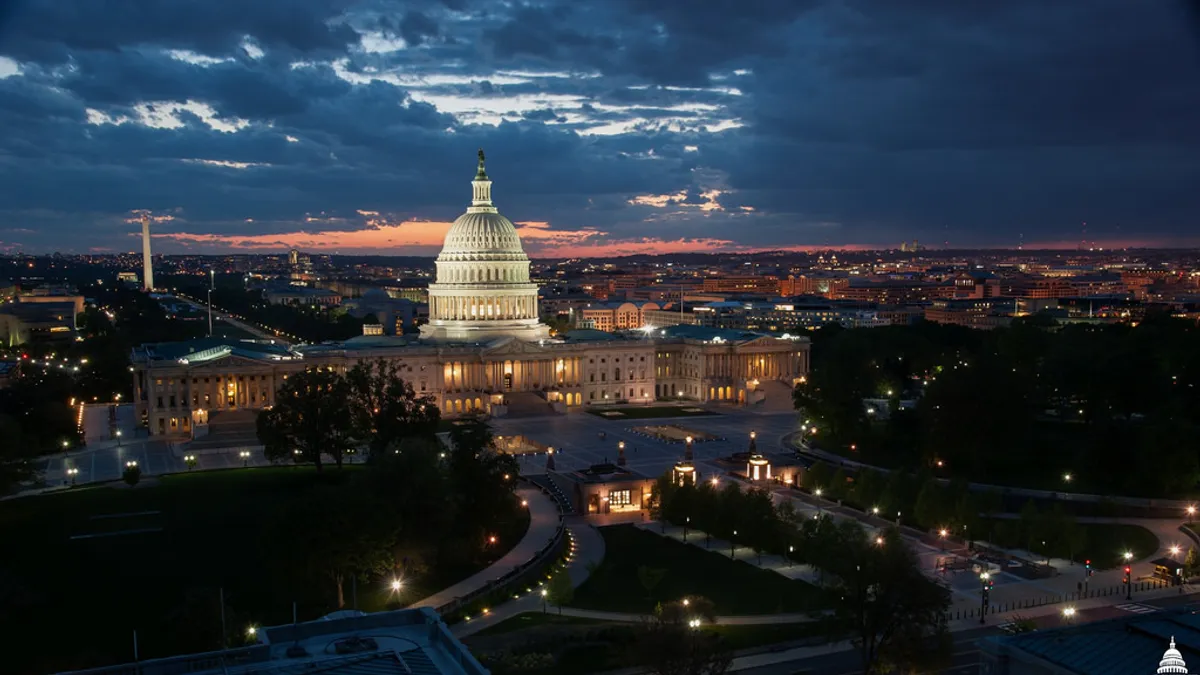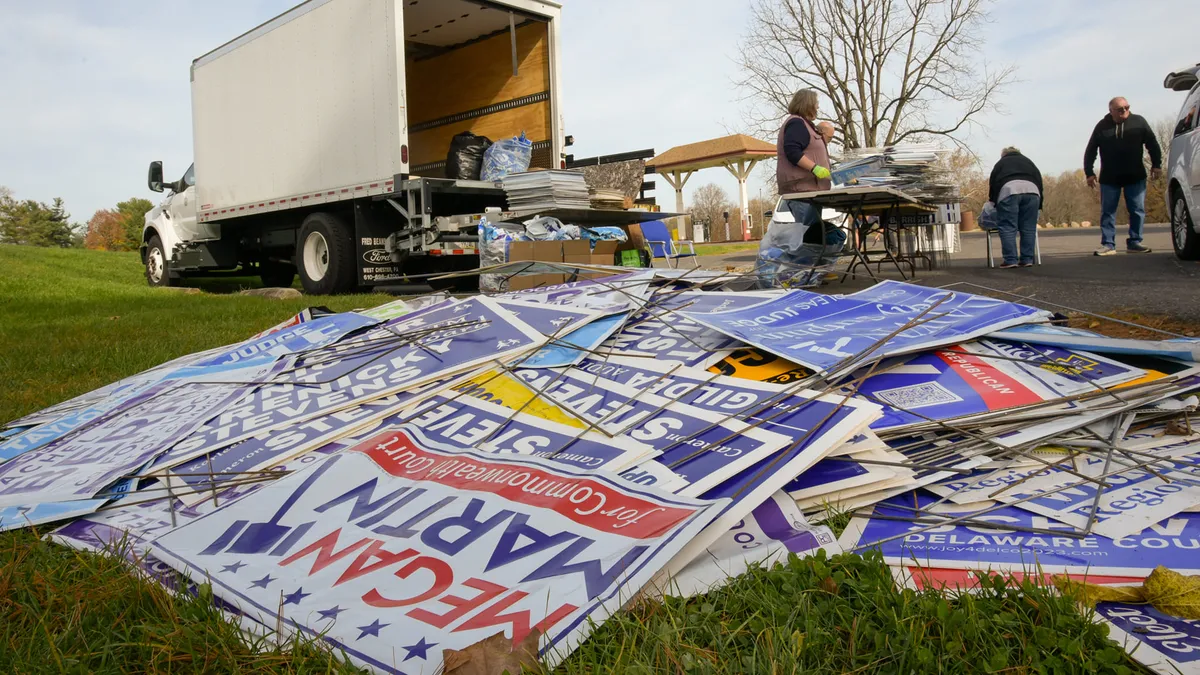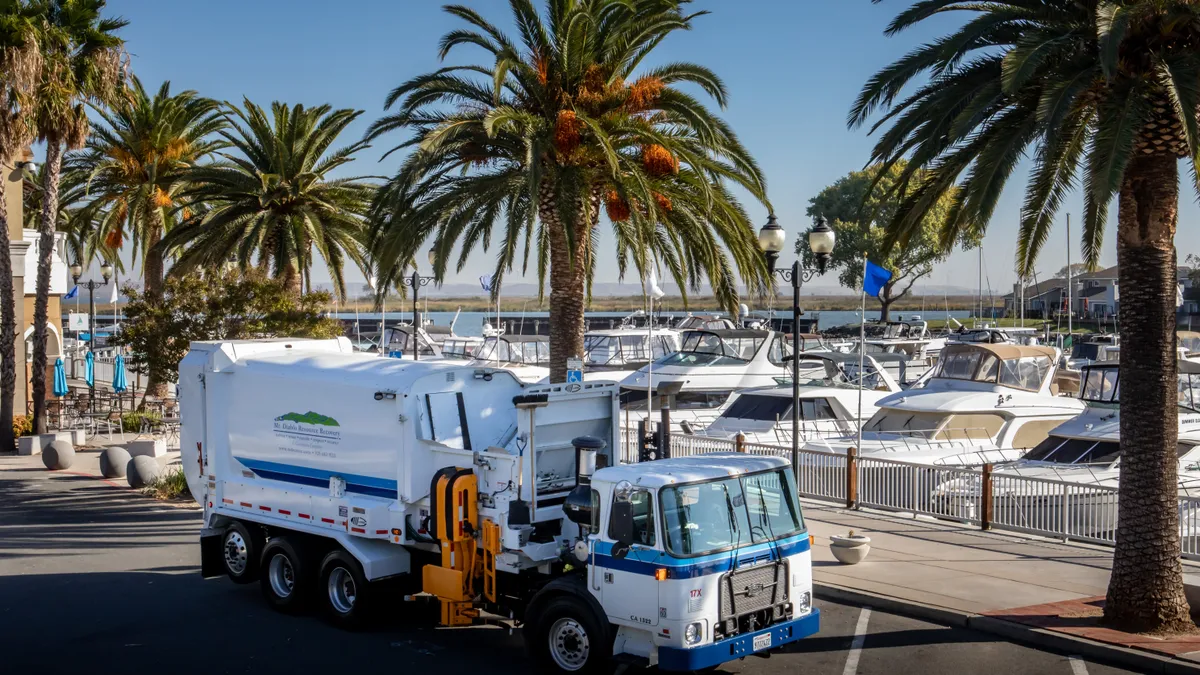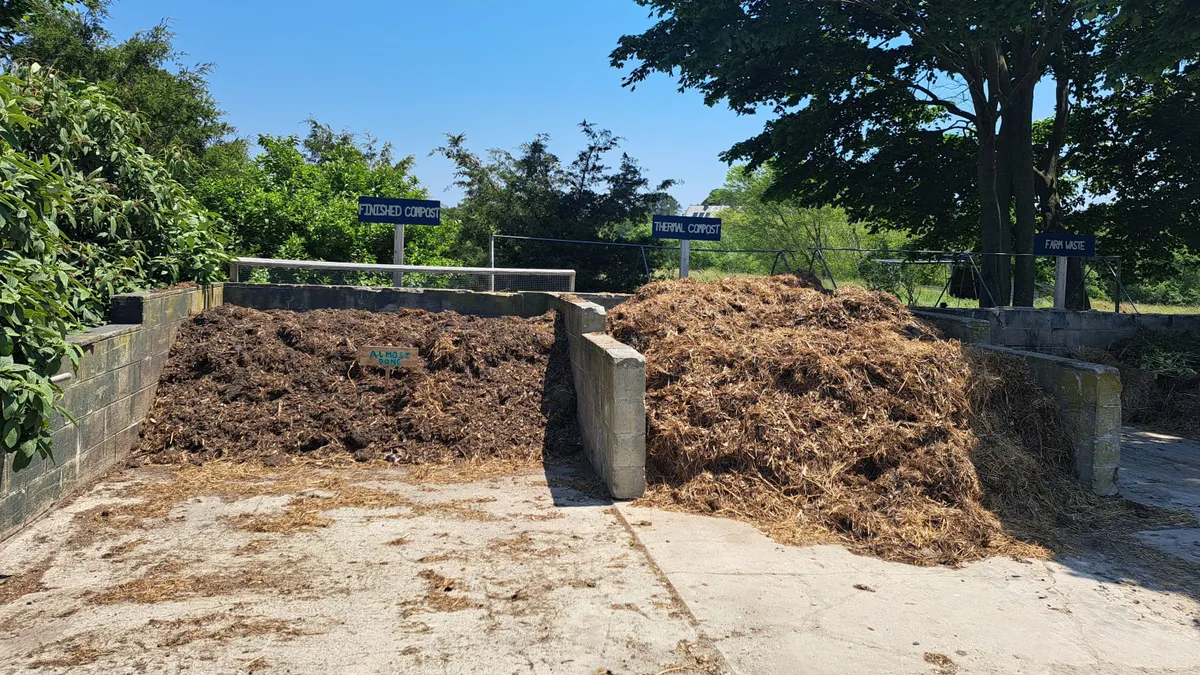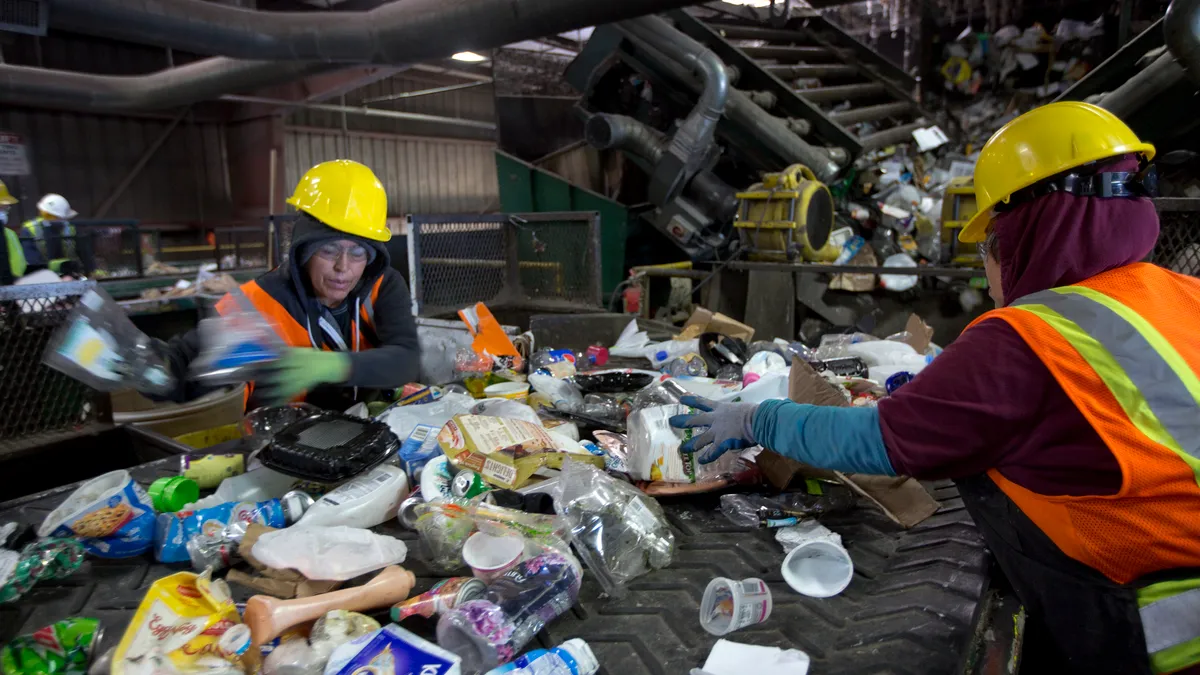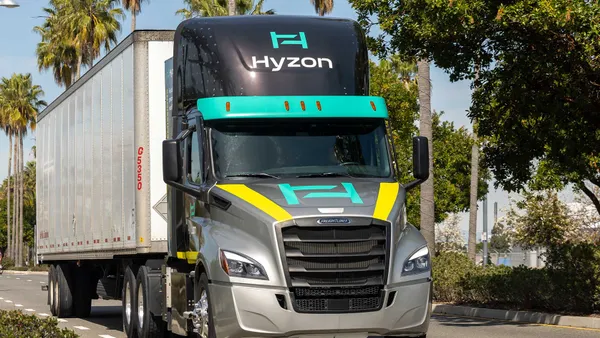The latest policy effort to address fluctuations in the recycling sector landed last week with the long-awaited Realizing the Economic Opportunities and Values of Expanding Recycling (RECOVER) Act, a major infrastructure bill.
The legislation, introduced by Reps. Tony Cárdenas (D-Calif.) and Larry Bucshon (R-Ind.), comes as the federal government takes an increasingly active role in addressing recycling problems.
Multiple groups from the waste and recycling, plastics, and glass industries are supportive, along with companies like PepsiCo and Unilever, while players in the fiber space are notably absent. Environmental groups have been more critical of the legislation, mirroring similar divides over other recent federal proposals.
The bill (H.R. 5115), would allocate $500 million in matching federal funds for states, municipalities, and tribes. That money is meant to improve various aspects of collection and processing infrastructure, ranging from curbside equipment to drop-off sites and MRFs. RECOVER would also establish a recycling infrastructure program within the U.S. EPA. The bill notably precludes the use of EPA funds to support incineration and would require the agency to submit a progress report to Congress no later than two years after implementation.
A number of prominent organizations have already thrown their weight behind the bill, including the Plastics Industry Association (PLASTICS), American Chemistry Council (ACC), Association of Plastic Recyclers, Sustainable Packaging Coalition, AMERIPEN, National Waste & Recycling Association, and Solid Waste Management Association of North America (SWANA), among others.
Jesse Maxwell, advocacy and safety manager for SWANA, told Waste Dive in a statement that the association broadly welcomes efforts to help municipal recycling programs. The organization's direct backing of federal legislation is a rare occasion.
"Leadership at the federal level is imperative right now to support our nation’s recycling system," said Maxwell.
RECOVER reflects a growing trend in federal attention to recycling. Turbulent commodity markets amid ongoing fallout from China's policy shifts have plagued the sector in recent years, leaving the industry struggling to address long-running issues like contamination. Action from either federal agencies or Congress is growing increasingly appealing to some in the industry, even as trade groups and environmental organizations disagree about approaches and what a final policy should entail.
EPA Administrator Andrew Wheeler has already announced the agency will set voluntary national recycling goals in 2020, guided by a recently released national framework. The Trump administration has advocated for a market-based approach to tackling recycling problems, rather than relying on regulations. The industry is also largely opposed to regulations, but some organizations have indicated that there could be room for targeted policy action within the recycling space.
That includes the "Save Our Seas 2.0" bill, which would target plastic pollution in waterways and elsewhere in the environment, by funding cleanup efforts and new processing technologies. The bill is backed by PLASTICS, ACC, and others like the Grocery Manufacturers Association (GMA).
But those same players have been slower to embrace legislation sponsored by Rep. Alan Lowenthal of (D-Calif.) and Sen. Tom Udall (D-N.M.). Their national plastics bill would establish extended producer responsibility (EPR) policies and a national container deposit system. That legislation would also seek to ban expanded polystyrene foam foodware, along with lightweight plastic bags and straws, among other items — measures that have been unpopular with the plastics industry.
Environmental advocates have expressed support for the Lowenthal-Udall bill, but many remain skeptical of both Save Our Seas 2.0 and RECOVER. Judith Enck, a former EPA regional administrator and founder of the group Beyond Plastics, told Waste Dive that recycling "has been a failure for most plastic material" despite the industry's ongoing efforts to back recycling policy friendly to their products.
"Plastic recycling has never even reached 10 percent and the plastics industry is investing heavily in producing virgin plastics," she said. "Expecting federal taxpayers to prop up plastic recycling is neither welcomed or effective in reducing plastic pollution that is severely damaging rivers and oceans."
The Institute of Scrap Recycling Industries (ISRI), meanwhile, told Waste Dive that the organization does not support RECOVER specifically in its current form. That stance reflects differences within the waste and recycling space over legislation outside of environmental concerns.
Others see the divisions over various bills as a false choice. Scott DeFife, president of the Glass Packaging Institute (GPI), told Waste Dive that his organization supports RECOVER and sees the bill's emphasis on infrastructure as a necessity.
"If the MRFs in a particular jurisdiction have not upgraded or modernized ... then glass is the kind of thing that often is the collateral damage if you will," DeFife said, arguing that aging processing infrastructure is contributing to glass contamination and hindering recycling as a result.
He also offered that RECOVER could boost efforts to combat climate change. Glass bottles made with recycled content require lower temperatures and contribute fewer greenhouse gas emissions than those relying on virgin feedstock. While DeFife said he had heard minimal criticism of the bill, he countered potential blowback by noting the legislation's emphasis on matching funds.
"The only federal funds to come out of this program would be in reaction to an application," he said, noting that states like California could seek to augment a glass recovery system with a dual stream program, while areas like northern Virginia could seek to invest in drop-off glass collection.
Other major recycling legislation has carried smaller price tags, like a "zero waste" proposal from Rep. Ilhan Omar (D-Minn.), which would provide up to $250 million for various types of processing infrastructure, among other projects.
But Keefe Harrison of The Recycling Partnership indicated during a recent America Recycles Day panel that it could cost upwards of $9 billion to address infrastructure needs within the sector — significantly more than the amount outlined in RECOVER.
DeFife indicated that public-private partnerships could be key to fixing that gap, potentially opening up space for groups like Closed Loop Partners. The organization, which did not respond to a request for comment, seeks to invest "in every stage of the circular economy" and recently estimated it may have $300 million worth of investments in the field by the end of this year.
While the bill's fate in an increasingly crowded policy space remains to be seen, RECOVER's backers have indicated they believe the legislation is a necessary addition. Maxwell of SWANA also expressed praise for the influx of recycling policies more broadly at the federal level.
"Whether it’s a national recycling goal like EPA has proposed, financial assistance like in the RECOVER Act and Save Our Seas 2.0 Act, or broader proposals like those made by Senator Udall and Representative Lowenthal, there is clearly an appetite for a federal response," he said.
DeFife also indicated that he thinks the growing trend of federal interest is likely to continue.
"I think there's going to be a lot more debate and policy in this area in the next couple of years," he said.


